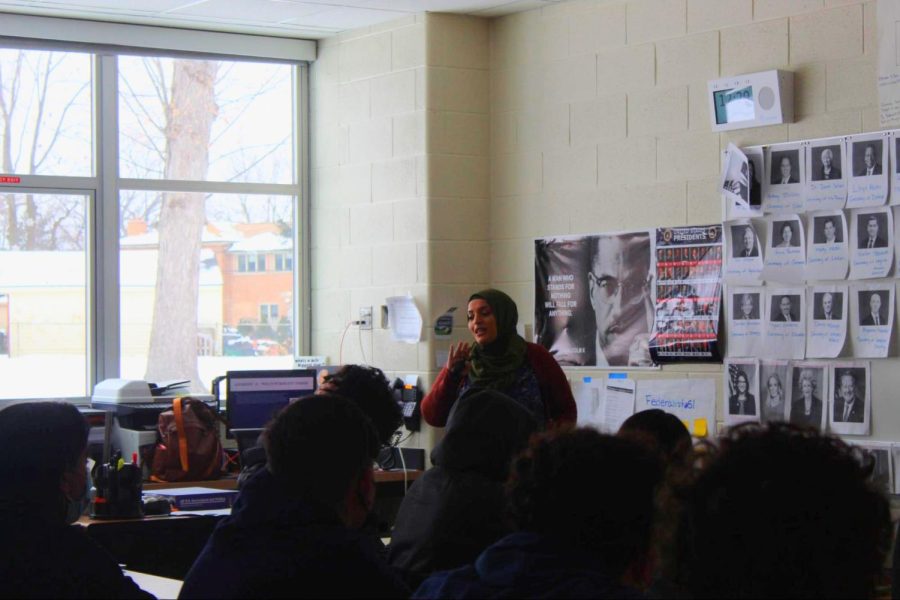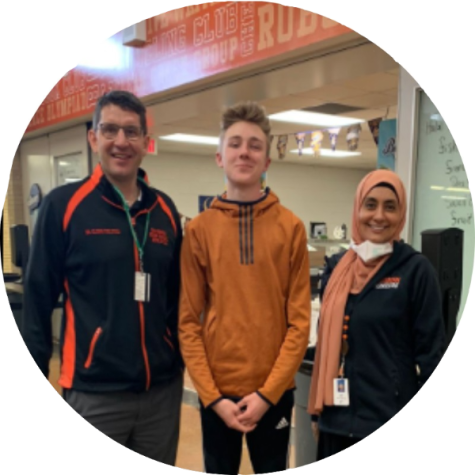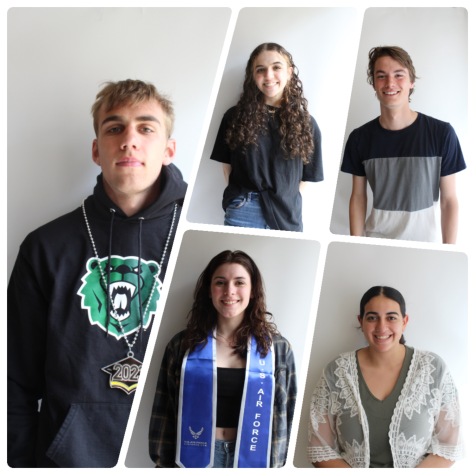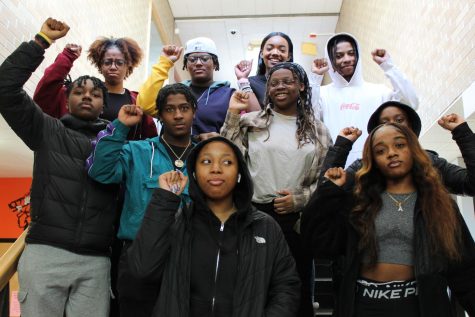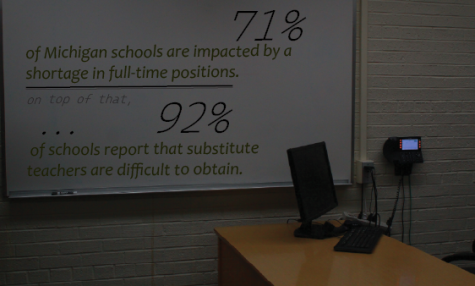AP-Perseverance
How a DHS government teacher adapted to an AP class in less than a week.
Saleh-Hernandez lectures a class of 27 students about individual liberties on Feb. 8, 2022. Saleh-Hernandez says she wants to help her students become active in political discussions. “My goal is for students to have their seat at the table. So when they have parents, or uncles, or relatives discuss politics, I want them to be able to carry their own,” Saleh-Hernandez said.
When Dearborn High School government teacher Eftikhar Saleh-Hernandez geared up for the 2021-2022 school year, she never expected that she would encounter a sudden transition from the standard government class that was home to her – to the unknown realm of AP Government.
After former AP Government teacher David Said took a new job, Saleh-Hernandez found out last minute that she must take over the class for the incoming students.
“[Mr. Said] gave me a 24-hour notice that he was leaving and that I was going to be the AP Government teacher,” Saleh-Hernandez said. “He gave me the resources he had, kind of walked me through AP Classroom, did as much as he could in the last 24 hours.”
Saleh-Hernandez admitted that switching to AP Government was a big change from the standard government class she had been teaching for years.
“Teaching mainstream government for so many years, I kind of had it in the bag,” Saleh-Hernandez said. “[AP Government] definitely has more work than I have been used to in the past couple of years.”
Perhaps one could argue that Saleh-Hernandez’s ability to adapt originates from her unique childhood.
“I grew up in a home with six sisters, a mother who was illiterate, and a father,” Saleh-Hernandez said. Saleh-Hernandez said she had a great relationship with all of her siblings, finding joy through their close bond in the family domain.
“I grew up in a relatively strict, conservative home so it wasn’t like we had games at our disposal or could go out when we wanted, so we really relied on each other for entertainment being so many of us,” she said. “We got along splendidly. We really did.”
She said she especially appreciates her mother for overcoming obstacles to provide for her.
“My mother, being illiterate, was raised in the villages of Yemen, and cannot read and write in Arabic or in English. For her and having so many daughters, she really wanted to ensure that we become educated,” Saleh-Hernandez said. “I’m very inspired by her and the fact that she was able to accomplish so much being illiterate.”
Saleh-Hernandez has found lots of help and support through her colleagues at DHS, and it is safe to say that they have a lot of respect for her. Head of the DHS History Department, John Forster, said Saleh-Hernandez cares about her students and her community.
“Switching to an AP class is not easy, especially in the little time she was given,” Forster said. “She really cares about building relationships with her students and I like that she is politically active in her community.”
DHS AP U.S. History teacher Jared Maynard said he appreciates the energy that she brings to the classroom.
“Ms. Saleh-Hernandez knows her stuff,” he said. “She talks about government officials like they are celebrities, which I think is great that she is able to bring in such expertise and excitement for government.”
Steven Hernandez, Ms. Saleh-Hernandez’s husband, attested to his wife’s motivation to teach.
“Ms. Saleh-Hernandez has a drive to learn and attention to detail that allows her to absorb and then impart complex knowledge to her students,” Hernandez said.
Saleh-Hernandez said she sees the remainder of this year as an opportunity where she will learn a lot about her teaching style.
“This is going to be something that I look back at and think I was too quick to teach this unit or I was too slow,” Saleh-Hernandez said. “But I don’t know that yet. And I think that frustration comes from me not knowing how all of this is going to turn out.”
But one thing is for sure. The smile that is evident on Saleh-Hernandez’s face every day is the same energy that keeps her motivated.
“I’ve never walked out of here saying I regretted taking this,” Saleh-Hernandez said. “I’ve never walked out of here saying I don’t like it.”
